Pregnancy and PT: Part 1/3: Benefits of Pelvic Floor PT for Pregnancy, Delivery and Recovery
PREGNANCY
Pregnancy is a beautiful and transformative journey, but it also comes with its share of challenges and discomforts. One invaluable resource for expectant mothers that is often overlooked is physical therapy. It’s a powerful tool that can help ease the physical strains of pregnancy, prepare your body for labor and postpartum recovery, and promote a healthier overall experience. In this blog post, we will explore the many reasons why physical therapy is beneficial for pregnancy.
Pelvic Floor Physical Therapy is here to help. Here are SEVERAL ways our clients and patients benefit from this specialty.
1: Reduce abdominal restrictions
During pregnancy, your abdominal muscles stretch and separate to accommodate your growing baby. Physical therapy can provide exercises and techniques to help maintain abdominal muscle function and reduce the risk of diastasis recti (abdominal separation) but also help mobilize scar tissue and soft tissue to allow for baby’s mobility within the belly.
2: Improve Core Stability
Maintaining core strength is essential during pregnancy. Physical therapy can teach you exercises and techniques to strengthen your core muscles, providing better support for your growing belly and reducing the risk of lower back pain.
3. Reduce Ligamentous Tension and Pain
Pregnancy hormones can cause ligaments to become more lax, leading to joint instability and discomfort. Physical therapists can offer techniques to alleviate tension and pain in your joints, making daily activities more manageable.
4: Reduce pelvic musculature tension
A strong and flexible pelvic floor is crucial during pregnancy and childbirth. Physical therapy can help you learn exercises to strengthen and LENGTHEN these muscles, reducing the risk of issues like incontinence and pelvic organ prolapse.
5. Release the Diaphragm
Your diaphragm plays a vital role in breathing, especially when your growing baby puts pressure on your lungs. Physical therapy can help release tension in the diaphragm, improve rib/back pain making it easier to breathe and promote relaxation.






